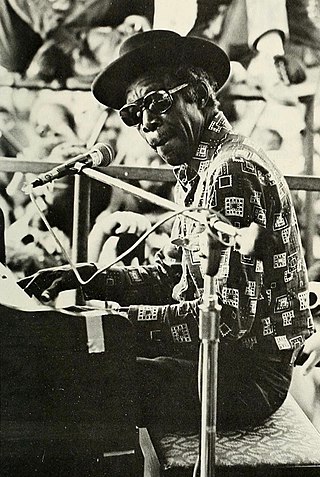
Henry Roeland "Roy" Byrd, better known as Professor Longhair or "Fess" for short, was an American singer and pianist who performed New Orleans blues. He was active in two distinct periods, first in the heyday of early rhythm and blues and later in the resurgence of interest in traditional jazz after the founding of the New Orleans Jazz and Heritage Festival in 1970. His piano style has been described as "instantly recognizable, combining rumba, mambo, and calypso".

The Neville Brothers were an American R&B/soul/funk group, formed in 1976 in New Orleans, Louisiana.
The music of Louisiana can be divided into three general regions: rural south Louisiana, home to Creole Zydeco and Old French, New Orleans, and north Louisiana. The region in and around Greater New Orleans has a unique musical heritage tied to Dixieland jazz, blues, and Afro-Caribbean rhythms. The music of the northern portion of the state starting at Baton Rouge and reaching Shreveport has similarities to that of the rest of the US South.
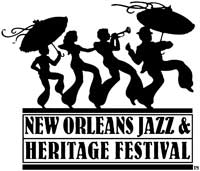
The New Orleans Jazz & Heritage Festival is an annual celebration of local music and culture held at the Fair Grounds Race Course in New Orleans, Louisiana. Jazz Fest attracts thousands of visitors to New Orleans each year. The New Orleans Jazz & Heritage Festival and Foundation Inc., as it is officially named, was established in 1970 as a 501(c)(3) nonprofit organization (NPO). The Foundation is the original organizer of the New Orleans Jazz & Heritage Festival presented by Shell Oil Company, a corporate financial sponsor. The Foundation was established primarily to redistribute the funds generated by Jazz Fest into the local community. As an NPO, their mission further states that the Foundation "promotes, preserves, perpetuates and encourages the music, culture and heritage of communities in Louisiana through festivals, programs and other cultural, educational, civic and economic activities". The founders of the organization included pianist and promoter George Wein, producer Quint Davis and the late Allison Miner.

Kermit Ruffins is an American jazz trumpeter, singer, and composer from New Orleans. He has been influenced by Louis Armstrong and Louis Jordan and says that the highest note he can hit on trumpet is a high C. He often accompanies his songs with his own vocals. Most of his bands perform New Orleans jazz standards though he also composes many of his own pieces. Jon Pareles of The New York Times wrote, "Mr. Ruffins is an unabashed entertainer who plays trumpet with a bright, silvery tone, sings with off-the-cuff charm and never gets too abstruse in his material."

WWOZ is a non-profit community-supported radio station in New Orleans. It is owned by the New Orleans Jazz & Heritage Foundation. The station specializes in music from or relating to the cultural heritage of New Orleans and the surrounding region of Louisiana. The playlist includes jazz, blues, local, regional and world music.
Thaddeus Bunol "Tad" Jones was an American music historian and researcher. His extensive research is credited with definitively establishing and documenting Louis Armstrong's correct birth date, August 4, 1901.

Our New Orleans: A Benefit Album for the Gulf Coast is an album which presents songs recorded in September and October 2005, shortly after the failure of misdesigned levees flooded New Orleans in the wake of Hurricane Katrina With the destruction of their hometown fresh in their minds, New Orleans artists set about making music that directly acknowledges the city.
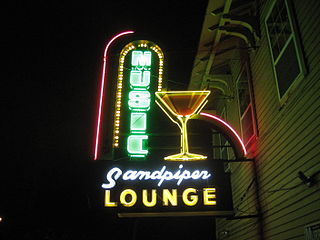
The Radiators, also known as The New Orleans Radiators, are an American swamp rock band from New Orleans, Louisiana, United States. The band's musical style, which draws from blues, rock, rhythm and blues, funk and soul music, has attracted a dedicated fanbase who the band calls "fish heads". Described by OffBeat magazine as "New Orleans' longest-running and most successful rock band", The Radiators had only limited commercial success, with only a handful of chart appearances, but, as a party band from a party town, their enthusiastic live performances, danceable beats and relentless touring earned the band a dedicated following and the admiration of many of their peers.
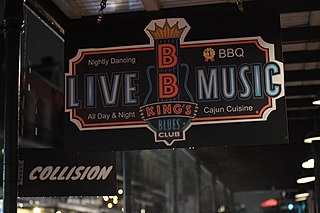
New Orleans blues is a subgenre of blues that developed in and around the city of New Orleans, influenced by jazz and Caribbean music. It is dominated by piano and saxophone, but also produced guitar bluesmen.

"Tipitina" is a song written and made famous by Professor Longhair. The song has been widely covered, and the Professor Longhair version was recorded in 1953 for Atlantic Records. "Tipitina" was first released in 1953. A previously unreleased alternate take was released on the album New Orleans Piano in 1972. Although the nature of his contributions are unknown, recording engineer Cosimo Matassa is listed as the song's co-writer along with Roy Byrd, Professor Longhair's legal name.

Tipitina's is a music venue located at the corner of Napoleon Avenue and Tchoupitoulas Street in Uptown New Orleans, Louisiana, United States.

Isidore "Tuts" Washington was an American blues pianist from New Orleans, Louisiana, United States.

June Yamagishi is a Japanese guitarist based in New Orleans, Louisiana. He is the guitarist for bands Papa Grows Funk and the Wild Magnolias.
Flow Tribe is an American funk rock band based in New Orleans, Louisiana. The group contains six members who are all natives of New Orleans. The band was founded in 2004, and was featured on Episode 11 of MTV's The Real World: New Orleans, which aired September 8, 2010. Sahar Dika, a member of The Real World: New Orleans cast, sang three songs with the band at a concert at Tipitina's. Flow Tribe continues to be a festival favorite playing The Voodoo Music Experience several times including the massive Main Stage. Flow Tribe has played the New Orleans Jazz and Heritage Festival 5 years running including the Acura Main Stage in 2014 and 2015. The band also plays several festivals all over the US and tours nationally. Flow Tribe, known for their high energy live show brings their traveling street parade with them to every concert. Relix Magazine called Flow Tribe “bizarrely irresistible.”

Junker Blues is a piano blues song first recorded in 1940 by Champion Jack Dupree. It formed the basis of several later songs including the 1949 "The Fat Man" by Fats Domino and the 1952 "Lawdy Miss Clawdy" by Lloyd Price. The song is about a drug user's conflict with life and the law, makes references to cocaine, "needles", "reefers", and life in the penitentiary, and contains admonishments against the use of hard drugs.
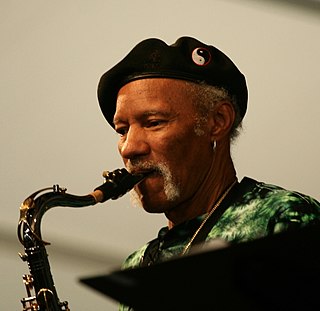
Charles Neville was an American R&B and jazz musician best known as part of The Neville Brothers. Known onstage as "Charlie the horn man", his saxophone playing helped earn the group a Grammy Award for best pop instrumental performance.

Leigh Harris was a New Orleans R&B and jazz singer and songwriter.

Alive and Kickin' is an album by the American R&B musician Fats Domino, released in 2006. Proceeds from the album were directed to Tipitina's Foundation, an organization committed to preserving the musical culture and legacy of New Orleans. The album raised around $150,000 for the foundation in its first year of release.















